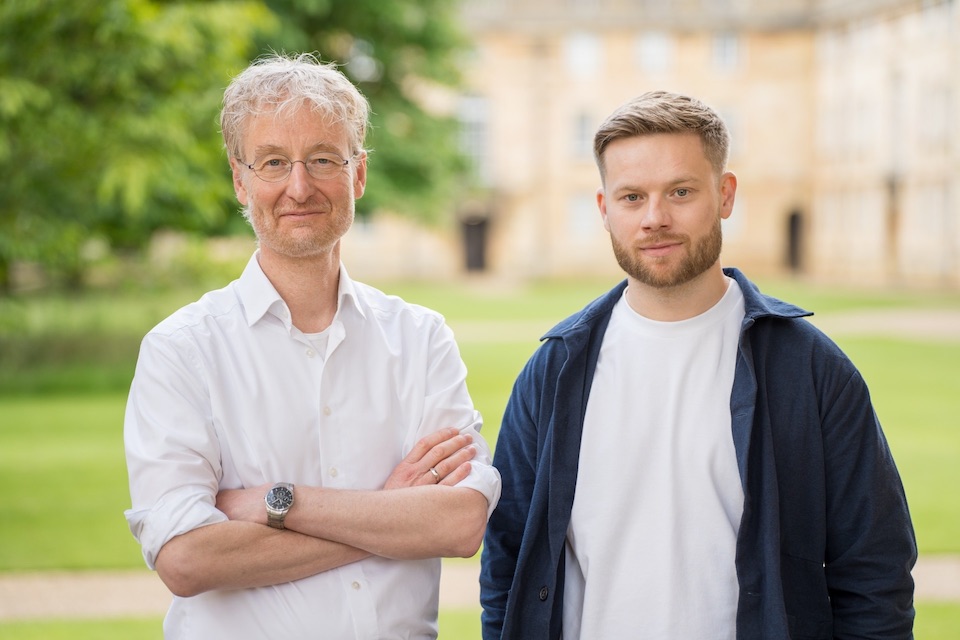The current way of coming up with new materials is to make something and then use a computer to see if it’s done right. But what if you reversed that and used generative AI-driven software to design the material in the first place? That’s what Cambridge, UK-based Cusp AIThe company has now secured $30 million in a seed round led by Hoxton Ventures.
“We’re flipping the traditional process on its head and saying, ‘If you can put materials or molecules in and get properties out, there’s no reason why you can’t put properties in and get materials or molecules out,'” says co-founder and CEO Chad Edwards.
The market is dominated by the following players: Schrödinger (listed on Nasdaq) and Dassault SystèmesBoth provide software tools for performing computational chemistry and materials simulations.
Newer still is Orbital Materials, launched by part of Google’s Deepmind team, which has an AI-powered platform that can discover materials for everything from batteries to carbon capture cells. The company recently raised $16 million in Series A funding.
“In the same way that search engines made the internet possible, I think we’re at the beginning of a world where we can search a very vast space of new materials and molecules to discover new materials with exactly the properties we want. I think we’re entering an era of ‘materials on demand,'” he said.
In fact, the company says its platform acts like a materials search engine, allowing it to quickly evaluate “a huge number of new structures.”
“Civilizations have always been defined by the materials of their time — the Bronze Age, the Stone Age — and I think we’re entering an era of materials on demand,” he added.
CuspAI was founded just this year and there seems to be a lot of work to do, but Edwards isn’t starting from scratch.
Co-founder Max Welling is a renowned AI pioneer and professor. Welling was previously a distinguished scientist and vice president at Microsoft Research and Qualcomm, and a professor at the University of Amsterdam. “Our AI can generate and evaluate new materials on demand. For example, you can request a material that selectively binds carbon dioxide under certain conditions, and our AI will generate, evaluate, and optimize molecular structures that precisely match those criteria,” Welling said in a statement.
Edwards himself is a chemist who has worked in deep tech commercialization at Google, BASF and more recently quantum computing leader Quantinuum.
Geoffrey Hinton, Known as the “Godfather of AI” He also serves as an advisor to the board of directors.
“Humanity will face many challenges over the next decade, some of which will be caused by AI and others that AI can solve. I am incredibly impressed with CuspAI and its mission to use AI to accelerate the process of designing new materials to help address one of humanity’s most pressing challenges: climate change,” Hinton said in a statement.
One area where CuspAI believes AI-designed materials could have a big impact in the near future is carbon capture and storage.
“We’re looking at designing molecular sponges that will selectively absorb carbon dioxide from the air,” Edwards says, “and when you heat them up, they release the carbon dioxide, which you can then pipe down for use, or bury in the ground, or do whatever you want with it.”
CuspAI has also partnered with Meta on an open science project to discover new materials to combat climate change.
“The FAIR (Fundamental AI Research) team looks forward to collaborating with CuspAI in the use of AI, including OpenDAC research, to accelerate the discovery of new DAC adsorbents,” Yann Le Cun, Meta’s vice president and chief AI scientist, said in a statement. “The world needs rapid progress in affordable carbon capture, and we believe CuspAI’s team is perfectly positioned to apply AI-based materials discovery to this pressing problem.”
Other investors in the round include LocalGlobe, Northzone, Touring Capital, Giant Ventures, FJ Labs, Tiferes Ventures and Zero Prime Ventures, along with angel investors including Deepmind’s Mehdi Ghissassi and Dorothy Chou.
